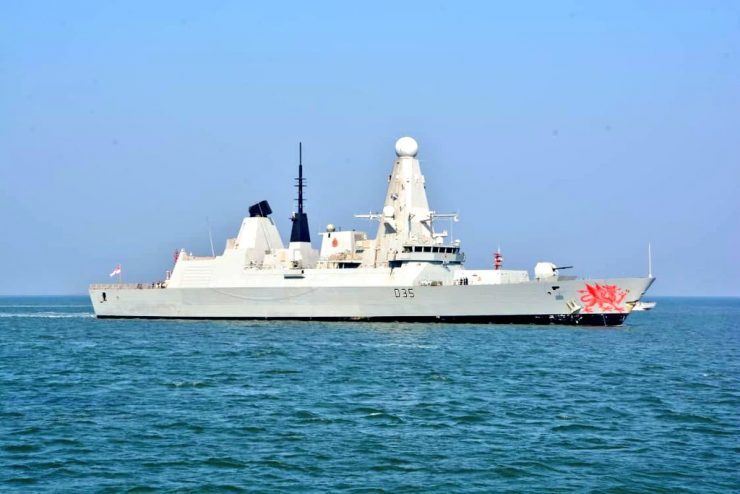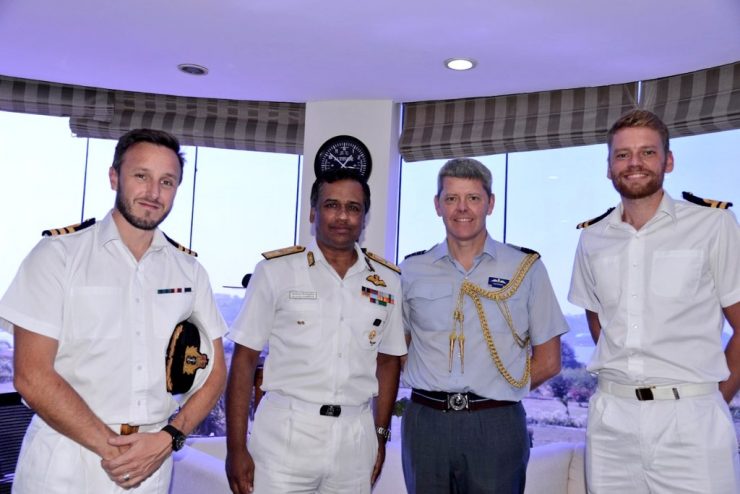
Panaji. The bilateral naval exercise between India Navy (IN) and Royal Navy (RN) of the United Kingdom KONKAN 18 commenced off Goa Coast on November 28.
Naval cooperation between India and the United Kingdom is based on the long term strategic relationship between both countries. Both Navies have, over the years, undertaken bilateral activities such as training exchanges and technical cooperation.
The Bilateral KONKAN exercise provides a platform for the two Navies to periodically exercise at sea and in harbour so as to build interoperability and share best practices.
The KONKAN series of exercises commenced in 2004, and since then has grown in scale. KONKAN-2018 would be conducted from November 28 to December 6 with units participating from both navies.

The harbour phase is scheduled from November 28 to 30, followed by the sea phase from December 2-6. The Royal Navy will be represented by HMS Dragon, a Type 45 Class Destroyer equipped with an integral Wildcat helicopter.
The Indian Navy will field INS Kolkata, the first ship of latest Kolkata class destroyers, equipped with integral Seaking and an IN submarine. In addition, IN maritime patrol aircraft, Dornier will also participate in the exercise.
The regular IN-RN interaction over the years has resulted in an increase in the professional content of the bilateral exercise. The thrust of the exercise this year would be on Anti-Air warfare, Anti-Surface Warfare, Anti-Submarine Warfare, Visit Board Search and Seizure (VBSS) and Seamanship Evolutions.
Besides exercises at sea, KONKAN-2018 also encompasses professional interactions and sports fixtures.
The exercise is aimed at deriving mutual benefit from each others’ experiences and is indicative of the continuing cooperation between the two countries. The inter-operability achieved over the years as a result of such exercises has proved to be operationally beneficial to both navies.
The naval cooperation is a tangible symbol of the commitment of both nations in ensuring a positive climate at sea for enhancing strategic stability and promoting economic prosperity.









